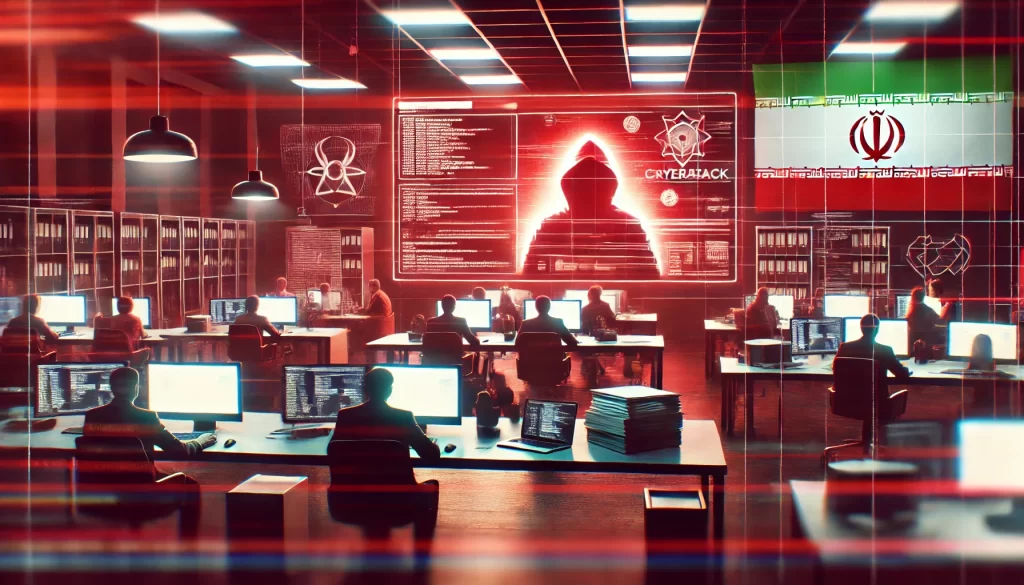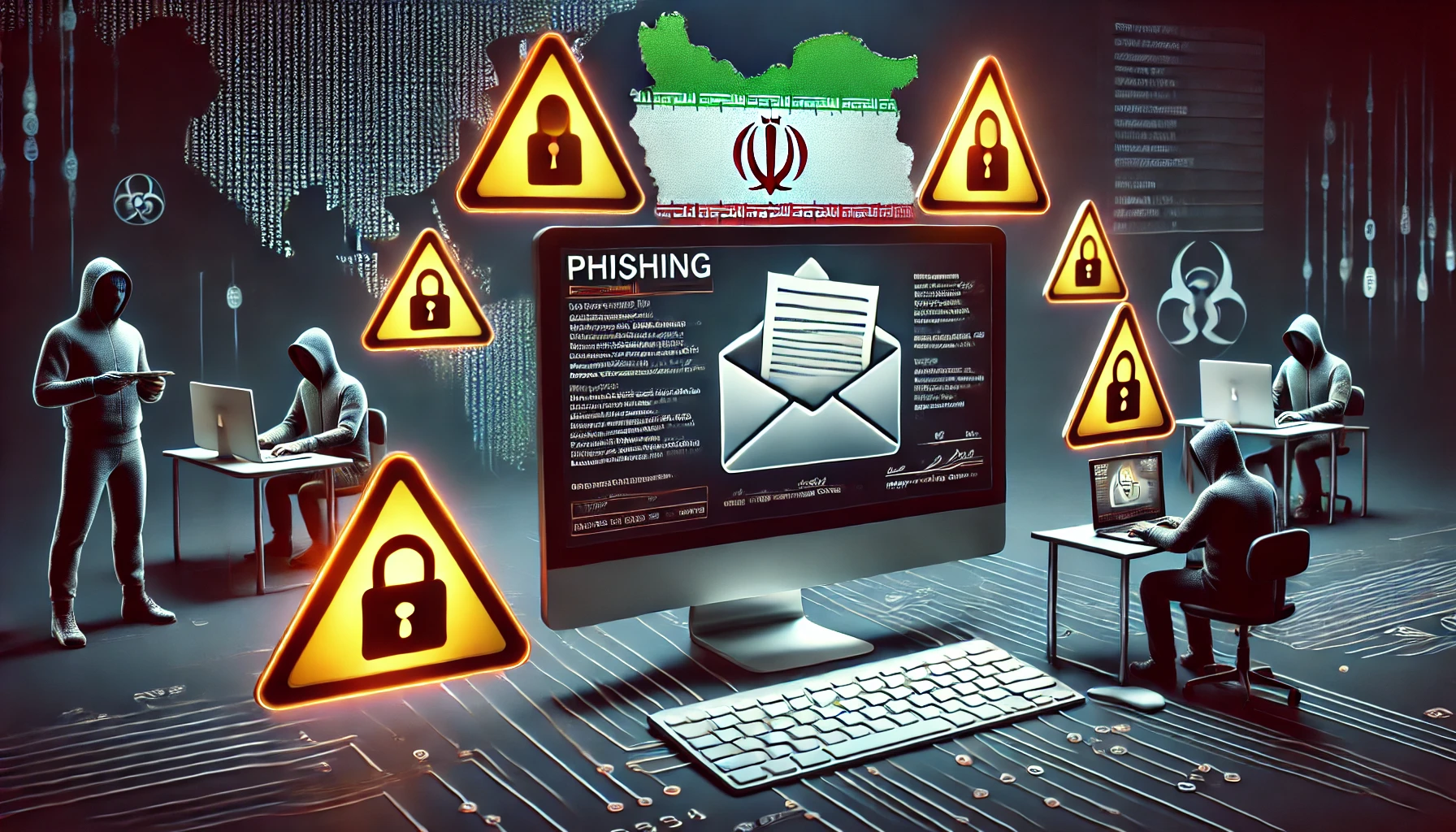Former President Donald Trump’s 2024 campaign was targeted by hackers believed to be linked to Iran. This marks the third consecutive U.S. presidential election in which foreign interference through hacking has occurred, though this time it’s the Iranians, not the Russians, who are at the center of attention.
The Hacking Incident
On August 11, 2024, Microsoft released a report that detailed a hacking attempt by a group associated with Iran’s Islamic Revolutionary Guard Corps. The group managed to breach the email account of a former senior adviser to a U.S. presidential campaign. Using this compromised account, the hackers sent out a fake email, a technique called “spear phishing,” in an attempt to gain access to the campaign’s more sensitive information.
Although the Microsoft report did not specifically name the targeted campaign, Trump’s team quickly announced that their campaign was the victim of this hacking attempt. Trump himself declared that the Iranian government had hacked one of his campaign’s websites but assured that only publicly available information was accessed. He used this opportunity to criticize the current administration, calling it “Weak and Ineffective.”
The Leaked Documents
Shortly after the hacking was revealed, Politico, a U.S. news outlet, reported that it had received internal documents from Trump’s campaign. These documents included detailed research on potential vice-presidential nominees, particularly focusing on Ohio Senator JD Vance, who eventually became Trump’s running mate. The research highlighted certain vulnerabilities, such as past criticisms Vance had made about Trump, which could be damaging if made public.
These internal documents were leaked by an anonymous source who contacted Politico using the name “Robert” and an AOL email account. The authenticity of the documents was confirmed by Politico, though it remains unclear if these leaks were directly connected to the Iranian hacking attempt or if they originated from another source within the campaign.

Iranian Response and U.S. Concerns
Iranian officials have strongly denied any involvement in the hacking, stating that they have no interest or intent to interfere in the U.S. presidential election. Despite these denials, the U.S. government remains concerned about foreign interference in its elections, especially given Iran’s history of cyber activities targeting American political processes.
According to Microsoft’s Threat Analysis Center, Iranian hackers have been actively involved in influence operations during the last three U.S. election cycles, including the 2020 election. These operations often involve cyber-attacks designed to create confusion, steal sensitive information, or influence public opinion.
Background and Broader Implications
The relationship between the United States and Iran has been tense for years, particularly since Trump withdrew the U.S. from a key nuclear deal with Iran in 2018 and reimposed economic sanctions on the country. In January 2020, tensions escalated further when Trump ordered a drone strike that killed Major General Qassim Suleimani, a top Iranian military leader. Since then, Iran has vowed to retaliate, and the hacking of Trump’s campaign could be seen as part of this broader conflict.
In the days following the hack, the Trump campaign has used the incident to bolster its narrative that foreign adversaries are attempting to interfere in the 2024 election to prevent Trump from returning to the White House. Campaign spokesperson Steven Cheung stated, “The Iranians know that President Trump will stop their reign of terror just like he did in his first four years in the White House.” He suggested that the hacking was directly intended to disrupt the election and favor the current administration.
Conclusion
While the full extent of the hacking and its impact on Trump’s campaign remains unclear, this incident highlights the ongoing threat of foreign interference in U.S. elections. The hacking of a presidential campaign by a foreign power, whether successful or not, raises serious concerns about the security of the electoral process and the potential influence of foreign governments on American democracy. As the 2024 election approaches, these issues are likely to remain at the forefront of political discourse.
This article is based on the following articles:
https://www.politico.com/news/2024/08/10/trump-campaign-hack-00173503
https://www.bbc.com/news/articles/c4ge30ze4dpo
https://www.nytimes.com/2024/08/11/us/politics/trump-campaign-hacking-iran.html

Background Information
1. Who is Donald Trump?
- Donald Trump is a businessman and politician who served as the 45th President of the United States from 2017 to 2021. He is a member of the Republican Party and is known for his strong opinions on various issues, including immigration, trade, and foreign policy. After losing the 2020 election to Joe Biden, Trump announced his intention to run for president again in 2024.
2. What is a Presidential Campaign?
- A presidential campaign is the effort a candidate makes to win the presidency. This involves traveling across the country, giving speeches, participating in debates, and trying to gain support from voters. Campaigns also include planning strategies, creating advertisements, and conducting research on opponents. Candidates often choose a vice-presidential running mate who will help them appeal to more voters.
3. What is Hacking?
- Hacking refers to the unauthorized access to computers, networks, or data. Hackers often break into systems to steal information, disrupt services, or cause harm. In the context of elections, hacking can be used to steal sensitive information, spread false information, or influence the outcome of the election. Spear phishing, mentioned in the article, is a common technique used by hackers where they send fake emails that appear to be from a trusted source to trick people into giving away their personal information or clicking on malicious links.
4. Who are the Islamic Revolutionary Guard Corps?
- The Islamic Revolutionary Guard Corps (IRGC) is a branch of Iran’s military that was founded after the Iranian Revolution in 1979. The IRGC is not only involved in defending Iran but also in protecting the country’s Islamic government. They have a special unit, known as the Quds Force, which is responsible for operations outside of Iran, including supporting allies in other countries and conducting cyber operations like hacking.
5. What is the Iran Nuclear Deal?
- The Iran Nuclear Deal, officially known as the Joint Comprehensive Plan of Action (JCPOA), was an agreement made in 2015 between Iran and several world powers, including the United States. The deal aimed to limit Iran’s ability to develop nuclear weapons in exchange for lifting economic sanctions on the country. However, in 2018, President Trump withdrew the U.S. from the agreement, leading to increased tensions between the U.S. and Iran.
6. What are Economic Sanctions?
- Economic sanctions are penalties imposed by one country on another to influence its behavior. These sanctions often involve restricting trade, freezing assets, or cutting off financial services. The goal is to pressure the targeted country into changing its policies without resorting to military action. The U.S. imposed sanctions on Iran to pressure it to stop its nuclear program.
7. Why is Cybersecurity Important in Elections?
- Cybersecurity refers to the measures taken to protect computers and data from unauthorized access or attacks. In elections, cybersecurity is crucial because it helps protect the integrity of the electoral process. Without strong cybersecurity, hackers could steal or manipulate information, spread misinformation, or disrupt the election. Protecting campaign data, voter information, and election systems is vital to ensuring a fair and democratic election.
8. What is Foreign Interference in Elections?
- Foreign interference occurs when another country tries to influence the outcome of an election in another nation. This can be done through hacking, spreading propaganda, or funding certain candidates. The goal is often to support a candidate who will be more favorable to the interfering country’s interests or to create chaos and distrust in the electoral process.
9. What is a Vice-Presidential Running Mate?
- In U.S. elections, a presidential candidate selects a vice-presidential running mate to join them on the ticket. The vice president is the second-highest official in the country and takes over if the president is unable to serve. The choice of a running mate is important because it can help balance the ticket by appealing to different groups of voters, adding experience, or reinforcing the campaign’s message.
10. What is Microsoft and Why is it Involved?
- Microsoft is a major technology company that creates software, including the Windows operating system and Microsoft Office. In addition to its products, Microsoft has a team dedicated to cybersecurity. This team, known as the Threat Analysis Center, monitors and reports on cyber threats, including those related to national security. Microsoft’s involvement in the article is due to their role in detecting the hacking attempt against Trump’s campaign.
11. What is Propaganda?
- Propaganda is information, often biased or misleading, used to promote a particular political cause or point of view. It is designed to influence people’s opinions and behavior. In the context of elections, propaganda can be used to sway voters, spread false information, or create division among the population.
12. Why is the Relationship Between the U.S. and Iran Important?
- The relationship between the U.S. and Iran has been tense for decades, especially since the Iranian Revolution in 1979, when Iran became an Islamic Republic. Since then, the two countries have often been at odds, particularly over Iran’s nuclear program and its influence in the Middle East. These tensions have led to economic sanctions, military confrontations, and cyber conflicts like the one described in the article.

Debate/Essay Questions
- Is it ethical for news outlets to publish information obtained through hacking, even if it is in the public interest?
- Does the publication of leaked documents undermine democracy, or does it enhance transparency?
Please subscribe to Insight Fortnight, our biweekly newsletter!
